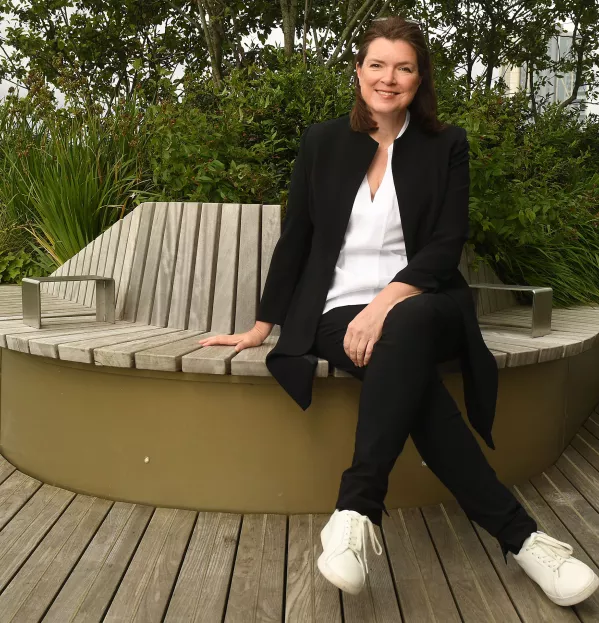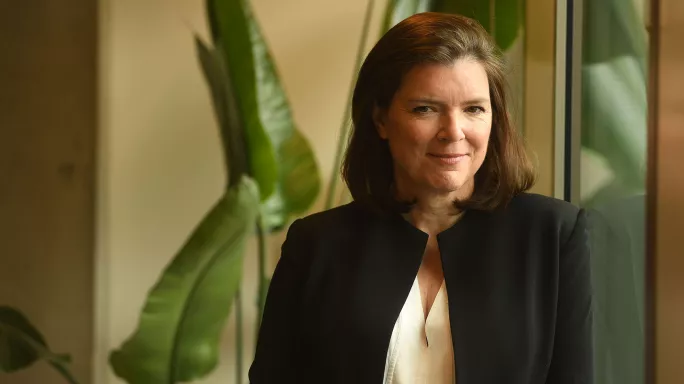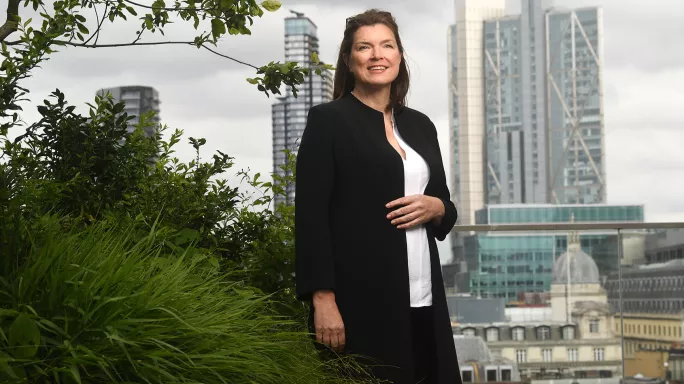- Home
- Leadership
- Strategy
- 10 questions with...Felicity Gillespie
10 questions with...Felicity Gillespie

Felicity Gillespie is the director of Kindred Squared, a charitable foundation working to improve early years education. She also sits on the Ofsted board and has worked as an adviser to the Department for Education’s academies programme since 2012.
Answering Tes’ 10 questions, she explains why she believes teachers are under-served by the school system, her hopes for “seismic” change in early years’ support under a new government - and why she’s forever grateful to a teacher who never tried to make her write with her right hand.
1. Who was your most memorable teacher at school and why?
I had a teacher in nursery who fought to protect my right to be left-handed. My teacher spoke to my mum and said ‘I will not let anyone tell you that your daughter should be made to write right-handed’. It just goes to show that your earliest teachers are the ones who set the path for your life.
I also had a brilliant history teacher at secondary school, Mrs Lewis, who was the first person to teach me that history isn’t just about facts - that history is written by the winners, and it’s a series of arguments as much as anything else.
2. What did you like best about school?
I loved all the extracurricular stuff, like music, drama and sport. I wasn’t so keen on the academic side of things, apart from history, which I went on to study at university.
I liked history because it was about stories and it was about people. Plus I also love a good argument.
More Tes’ 10 questions:
- Nick Brook, CEO of Speakers for Schools
- Lee Mason-Ellis, CEO of The Pioneer Academy
- Moira Marder, CEO of the Ted Wragg Trust
3. What did you like least about school?
I went to a brilliant school, so I was incredibly privileged as I had brilliant teachers, and that made every lesson interesting - although in maths, I usually didn’t understand what they were talking about.
The older I get and the longer I spend working in education, the more I realise just how lucky I was. The power of a brilliant education and the privilege of going to a really good school is just immense. That what I’ve taken away from my time at school.
4. Why did you decide to work in education?
Neither of my parents went to university. And as a result, I believe that education is life-changing - we can’t choose where we are born or who we are born to, but education gives us choices. I believe that equality of opportunity is something that everybody should have.

It’s that sense of fairness that has really driven all the jobs I’ve done in education - whether that is further education, schools-based education, or now in the early years - everything is about closing the disadvantage gap.
That’s why I’ve now ended up in early years: all of the work I did with older children in schools gave me this sense that I wished we could have started doing this earlier. Imagine if we had a level playing field at five, if every child started school developmentally ready to learn? It would be completely transformative.
5. What would you say is your proudest moment?
I’m proud of the steps we are taking to raise the public’s awareness about the early years and to shine a light on it.
There are also some academy trusts that I’ve worked with over the years that I’m really proud to be involved with. I was one of the brokers for Reach2 and for the Elliot Foundation - I still remember sitting in (former Reach2 founder and chief executive) Sir Steve Lancashire’s office as he told me that he was thinking about setting up an academy.
6. Do you have any regrets?
I wish things were better than they are. I’ve been in the education sector for thirty years but there is still so far to go in raising public awareness about why the early years matters and the impact that early development has on later life chances.
Every little step forward is gratifying, but it just makes you aware of the marathon that’s still to go. What I have learnt working in education is that system change is really hard.
It requires a lot of patience, and can be frustrating, especially when you feel that politics or bureaucracy gets in the way of actually doing what’s right for children.
7. What is the best thing about our current education system?
The best thing in our education system is the heroic group of brilliant teachers, as well as the unpaid, often unrecognised army of volunteer governors and trustees, who run schools and academies.
They are sort of invisible although they take on a huge responsibility. Without them, I don’t know how the system would continue.
8. What about the worst?
Are these brilliant teachers always well-served by the system? I would say not well enough. It’s a shame that education is still treated as a political football. It’s not evidence-led in the way that NICE (National Institute for Health and Care Excellence) guidance and the King’s Fund for health are.

We have some of the best data in the world in our school system. If decision-making was solely evidence-based, it would be really good. There’s constant innovation and iteration which is not always driven by evidence, but by other considerations.
9. Who has made the biggest difference in education in the last year?
The fact that [education secretary] Bridget Phillipson has said that early years is her number one priority is pretty seismic. I can’t think of the last politician that said that. It represents a breakthrough in terms of a politician who understands the foundational importance of the early years.
10. What would you do if you became education secretary?
I would nip down to Number 11 and have a word with the chancellor, and explain the ABC of human development - to make the point that the earlier we intervene, the easier it is to close the disadvantage gap and the better it is for children and cheaper it is for the country. I would reposition, refund and revalue early years so it is seen as the first phase of education.
I would also make place in the curriculum to make sure that every child understands the basics of attachment, and the importance of early relationships. So every child has an understanding that, when they become parents, the first years of a child’s life are critical.
Felicity Gillespie was talking to Cerys Turner
For the latest school and trust leadership insights delivered directly to your inbox every month, sign up to the Tes Leaders’ Briefing newsletter
You need a Tes subscription to read this article
Subscribe now to read this article and get other subscriber-only content:
- Unlimited access to all Tes magazine content
- Exclusive subscriber-only stories
- Award-winning email newsletters
Already a subscriber? Log in
You need a subscription to read this article
Subscribe now to read this article and get other subscriber-only content, including:
- Unlimited access to all Tes magazine content
- Exclusive subscriber-only stories
- Award-winning email newsletters
topics in this article



